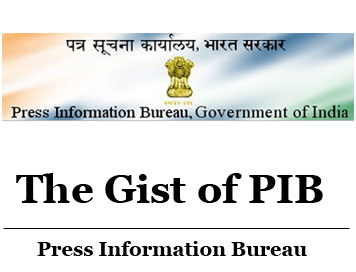(The Gist of PIB) Zero-budget natural farming brought big gains for Andhra farmers
(THE GIST OF PIB) Zero-budget natural farming brought big gains for Andhra farmers
[September-2020]
Zero-budget natural farming brought big gains for Andhra farmers
- Researchers at Bengaluru-based technology-policy think-tank Center for Study of Science, Technology and Policy conducted an exploratory study in Andhra Pradesh to compare ZBNF and non-ZBNF techniques in paddy, groundnut, chilli, cotton and maize farming.
Key highlights:
- Findings were in part crops of like a study paddy, that groundnut compared ZBNF etc. It and compared non-ZBNF 6 ZERO BUDGET NATURAL FARMING parameters:
- Water, electricity, energy consumption, greenhouse gas emissions, yield and net revenue.
- ZBNF provided saving of 1,400 to 3,500 cubic metres of water per acre per paddy cropping period. If all of India's paddy area is brought under ZBNF, 150-400 billion cubic metre of water can potentially be saved.
- Electricity consumption of farms relying on groundwater reduced by 1,500-3,900 units per acre and saved Rs 6,000-16,000.
- ZBNF hindered microbial activity and cut methane emissions by 88%.
- Study did not observe much impact on crop yield.
- ZBNF is a method of chemical-free agriculture drawing from traditional Indian practices. It was originally promoted by Maharashtrian agriculturist Subhash Palekar. ZBNF was introduced in Union Budget 2019-20.
- ZBNF is based on 4 pillars.
Benefits of ZBNF:
- Requires very less amount of water and electricity than what is required under chemical farming,
- To reduces farming costs by using in-situ resources,
- To manage soil nutrition, fertility, pests and seeds.
CLICK HERE TO DOWNLOAD FULL PDF
Study Material for UPSC General Studies Pre Cum Mains
This is Only Sample Material, To Get Full Materials Buy The Gist 1 Year Subscription - "Only PDF" Click Here
Click Here to Download More Free Sample Material
<<Go Back To Main Page
Courtesy: PIB


